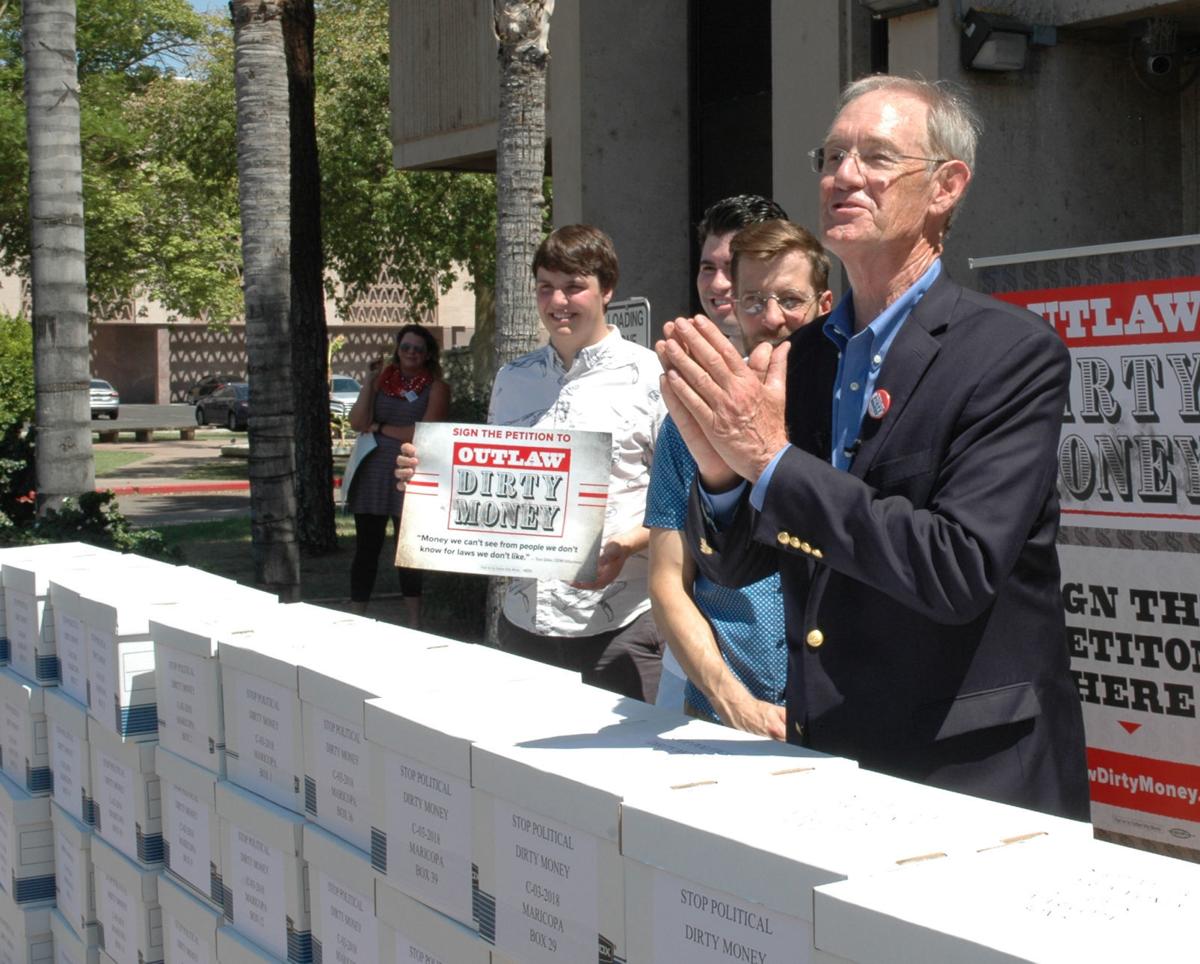PHOENIX — Arizonans may get a chance to decide whether they want to find out who is trying to influence their elections.
Backers of a constitutional amendment to mandate disclosure of donors submitted more than 285,000 signatures Thursday to put the issue to voters. That’s only about 25,000 more than need to be found valid to have the constitutional amendment on the Nov. 6 ballot.
But campaign organizer and former state Attorney General Terry Goddard said he’s convinced the error rate will be low enough to meet the goal.
If he succeeds, the campaign is likely to have stiff opposition from business groups and others who now put money into political races knowing that Arizona law allows them to shield the names of their donors from public scrutiny.
State laws say any group recognized by the Internal Revenue Services as a “social welfare” organization need not spell out who is financing their effort. The result has been a series of campaigns for statewide and legislative offices where funds flow into mailers and commercials on behalf of candidates, with no disclosure of who is spending the money.
In 2014, for example, American Encore spent more than $1.4 million on Arizona races. And while the group originated with an organization founded by the Koch brothers, there is nothing on the record of who put up those dollars.
What is known is some of the American Encore money helped Republican Doug Ducey defeat Democrat Fred DuVal in the governor’s race. Overall, outside groups spent more than $8 million on Ducey’s behalf in that campaign, outstripping the $7.9 Ducey spent himself that he got from donors whose identities he was required to disclose.
Earlier this year the Republican-controlled Legislature voted to extend the protection against disclosure to local elections.
That most immediately overrode the 91-9 percent vote by Tempe residents months earlier to prohibit anonymous donations to city races.
The initiative, if it makes the ballot and is approved, would insert a “right-to-know” provision in the Arizona Constitution, requiring any group seeking to influence a political race or ballot measure to reveal the identity of anyone who contributed more than $10,000.
As a constitutional amendment, it could not be overridden by lawmakers without asking for voter approval.
Goddard said it is structured to also guard against “chain donations,” where one group gives to a second and that one funnels money to a third and so on.
He said the law requires the organization that ultimately spends the money in Arizona to trace those dollars back and disclose the original source.
He dubbed the campaign “Outlaw Dirty Money.”
“That’s the sums and the millions of dollars that are being spent in Arizona elections,” Goddard said while filing the petitions Thursday.
“And we have no idea where they come from because our laws don’t require disclosure of those contributors.”
He acknowledged that courts have long ruled that the constitutional right to free speech also includes the right to anonymous speech. But he said what the initiative seeks to regulate is different.
“You’re mixing up the right to speech and the right to contribute,” Goddard said. “When someone contributes and gets a big microphone the law is very clear that it is perfectly legal to ask them to disclose.”
Goddard, a Democrat, said this is not a partisan issue, and that the campaign also is being led by Republicans including Grant Woods, another former attorney general.
But it has been the Republicans in the Legislature who have allowed anonymous donations.
During 2016 debate on the legislation, Rep. J.D. Mesnard, R-Chandler, said voters don’t need to know the source of the funds paying for TV ads, mailers, billboards, phone calls and literature left at the door.
“A message is a message,” said Mesnard, now the House speaker. “If it’s important to you to know who’s behind the message and you don’t know who’s behind the message, then disregard it.”
But Goddard said that while the U.S. Supreme Court opened the door to these third-party campaigns in a 2010 ruling, that was never meant to be a license for donors to hide their identity.





